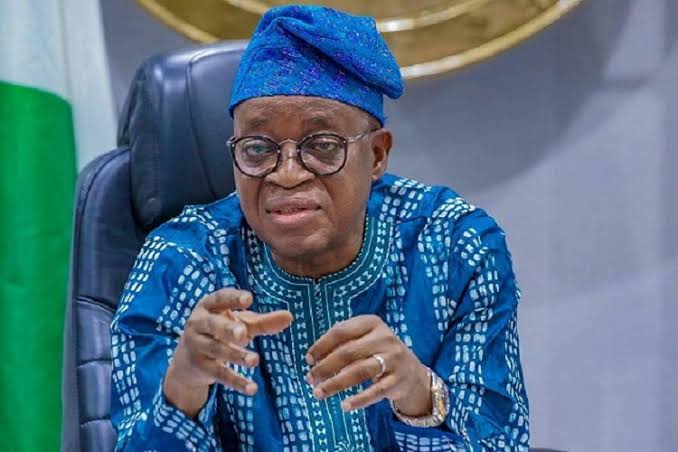By Oluyinka Onigbinde & Joshua Yousouph

The Federal Government last week created a long-expected dedicated Ministry for the Nigerian maritime industry.
Christened as Marine and Blue Economy, the development has expectedly generated excitement among industry stakeholders who believe that it marks a significant step towards harnessing the potential of Nigeria’s vast maritime resources.
Recall that President Bola Tinubu, in unveiling his new cabinet, named H.E Adegboyega Oyetola as the Minister of Marine and Blue Economy. This appointment has been widely applauded by experts and industry associations alike.
Leading the chorus of approval is renowned maritime lawyer, Dr. Olisa Agbakoba SAN, who declared that it is a historic decision that could position Nigeria as a global maritime hub and drive economic growth. Dr. Agbakoba emphasizes that the maritime sector holds greater promise than the petroleum industry and could contribute substantially to public revenue.
A statement personally signed by the former President of the Nigerian Bar Association NBA, and pioneer President of Nigeria Chamber of Shipping reads in part: “I express perfect delight that after 30 years of advocacy on major maritime policy, finally a minister for marine and blue economy has been named. The maritime sector has been a distinctly ignored sector of our economy.
“This has been a major omission. Nigeria is a maritime nation and must advance policy issues to tap into the absolutely massive economic opportunities. This is a sector that will, with proper direction of government, easily contribute at least N7 Trillion to the public revenue. Key aspects of our maritime policy must focus on enforcement of Cabotage legislation, ports development, ocean governance and the blue economy in addition to many aspects of this incredibly wealthy sector. Speaking for the Maritime sector, I can say we look forward to robust policies by the government.” he said.
Speaking also, Captain Tajudeen Alao, President of the Nigerian Association of Master Mariners (NAMM), expressed gratitude for President Tinubu’s receptiveness to the industry’s needs. He acknowledged that the maritime industry has long been overshadowed by other sectors, and the new ministry signifies a renewed focus on its potential.
However, Capt. Alao also pointed out that the minister faces a learning curve due to his engineering background. He suggested that to succeed, the minister should engage with various stakeholders individually, including shipping agencies, marine engineers, terminal operators, and others, to understand their challenges and needs.
He emphasized the importance of addressing issues such as access roads to ports, security, and intervention funds to ease financial pressures.
Babatunde Mukaila, the sole administrator of the Association of Nigerian Licensed Customs Agents (ANLCA), hailed the creation of the maritime ministry as a positive step. He highlighted that it was a long-standing demand of the industry and showcases the government’s willingness to listen to stakeholders.
Mukaila acknowledged the potential challenges in appointing the right personnel for this specialized ministry, but expressed optimism that with the right approach, these challenges could be overcome.
Dr. Chris Ebare, Chairman of the Institute of Chartered Shipbrokers (ICS), echoed the sentiments of his peers. He also commended President Tinubu for addressing the long-held aspirations of maritime stakeholders by creating a dedicated ministry for maritime. Dr. Ebare emphasized that a well-developed maritime industry could outperform the oil sector in terms of revenue generation.
On his part, Otunba Sola Olatunji, a Chieftain of the Nigerian Shipowners Association (NISA), expressed confidence in the newly-appointed minister’s vision and leadership skills. He believed that the minister’s youthful vigor and determination, combined with the industry’s renewed hope under President Tinubu’s agenda, would lead to positive changes.
He added that the establishment of the Ministry for Marine and Blue Economy has sparked optimism within the maritime community, adding that, stakeholders are eager to collaborate with the new leadership and provide the necessary support to drive the growth of the sector, which holds immense promise for Nigeria’s economic development.















